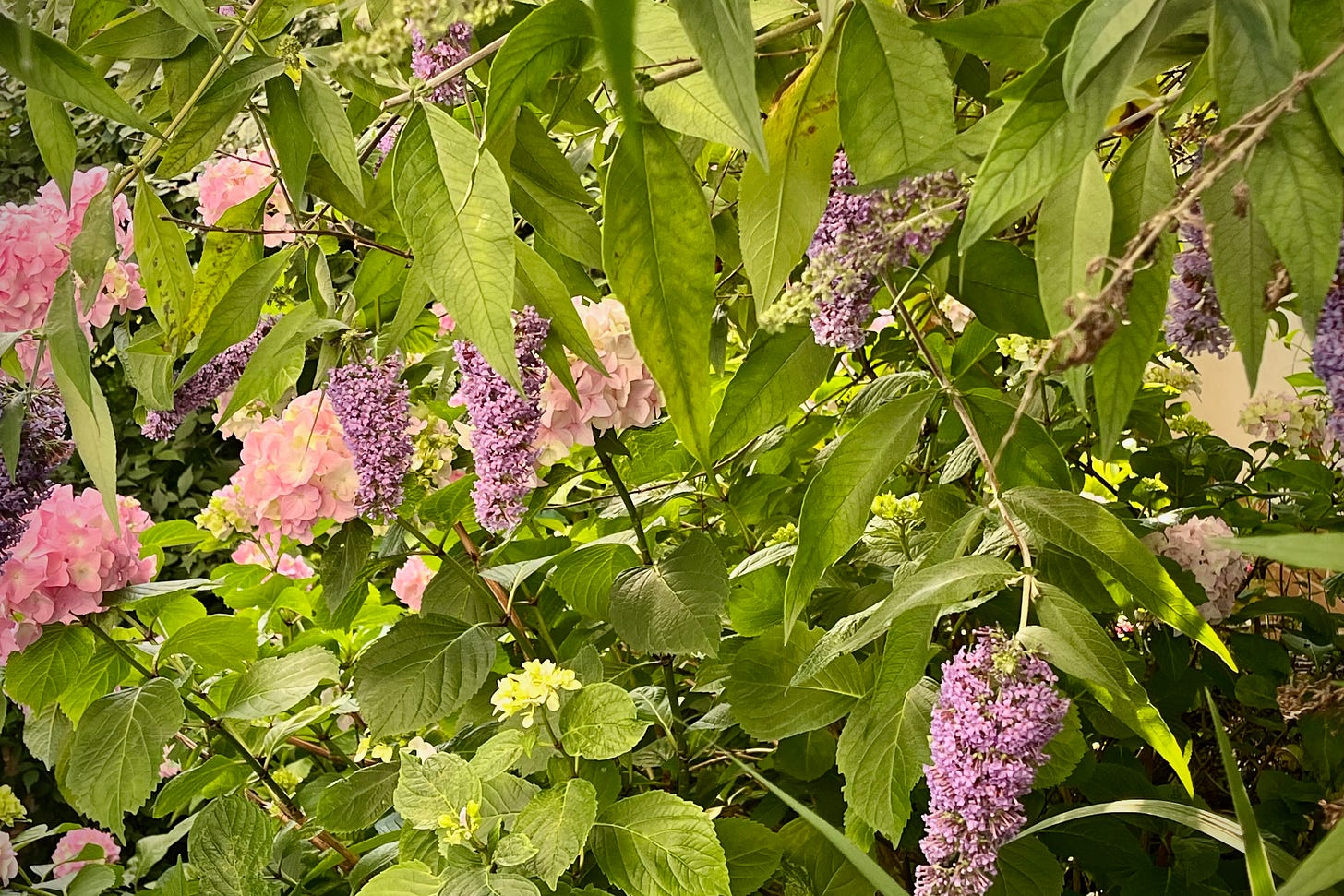The Hard Prune delivers practical tools for dystopian times to your inbox most Fridays.
What a week it’s been. Things are really hard right now, my friends. They may be for a while.
In preparation for talking with Dana Brinson later today about the grief these times engender — a conversation I’ll be sharing with you — I’m revisiting Francis Waller, who writes that “grief is not here to take us hostage, but instead to reshape us in some fundamental way, to help us become our mature selves, capable of living in the creative tension between grief and gratitude.”
I’ll be honest — I felt mature enough before this polycrisis rolled into town! I’d rather just stay in my old, underdeveloped shape than have to adapt to what we are facing now, whether new atrocities, fresh miscarriages of justice, or long-standing wounds that the more privileged among us are only beginning to feel bleed. Being reshaped is hard work, and I don’t like it.
But that last part of what Waller says, about living in the creative tension between grief and gratitude — that appeals to me.
Those of you who’ve been reading for a while know I’ve shared ways to encourage gratitude and deepen positive feelings. And you also know I embrace an approach that allows all emotions, even the ugly and unpleasant ones, a seat at the table. In my own life lately, I’ve been leaning quite a bit on this latter approach.
The past week has felt heavier to me, more difficult to feel okay within. There is just so much bad news, from so many directions, on so many levels. I am noticing more resistance, more sadness. My outrage is simmering down into a sense of defeat. So many things feel so hopeless right now.
Here is what I’m doing about it. I am naming what I’m feeling, in order to give it space, not shut it out. I say to myself, I am feeling ground down. I am feeling bone-tired. I am a person who cares about the world and the people in it, and I am so emotionally exhausted that I am fantasizing about running away from all of it, somehow, to a vague mirage of farm and land and happy family and no news where I can go live denially ever after.
Does this make me feel better? Not exactly. In some ways, giving voice to these emotions and inclinations intensifies them. But what it does do is make them feel okay. It normalizes my unpleasant feelings. Of course I feel this way! What an entirely normal reaction to what is happening.
And when I allow, and try to accept, this entirely normal reaction, it becomes just a little less about me and little more about how life works. To paraphrase the Buddha, there are a lot of shitty things about being alive. Yet, as Ruth King puts it in her pithy summary of his teaching on the nature of existence: nothing is personal, nothing is perfect, and nothing is permanent.
Here is something else I’m doing about the pervasive sense of hopelessness I’m encountering. When I’m sitting with the dog watching tv, or taking a walk along the canal, or doing the dishes, and my thoughts slot into familiar tracks of overwhelm or sadness or doubt or worry, or they start seeking existential metaphors like how I’m swimming upstream and fear I always will be, or how civilisation is walking a cliff’s edge, I stop and ask myself, “But how do I feel in this moment?”
And usually, in that particular moment, I actually feel just fine. The buddleia smells of honey. The dog is warm and snoring beside me. There are young apples on the trees. There is ease in my shoulders, even if my throat feels tight. I’ve eaten a nice dinner.
Recognising these things may not swing me fully into the region of gratitude — I may still linger by the vortex of grief — but they do remind me that everything is present all at once. I can be content at the same time that I despair. Or, to be more Buddhist about it, contentment and despair can both be present at once, no ‘I’ necessary.
Releasing the I by naming the emotions as nouns rather than adjectives (hopelessness is present, rather than I feel hopeless) creates just that little bit more space — space to detach for a moment from the difficult, space the good can expand into. Nothing is personal. Nothing is perfect. Nothing is permanent.
And nothing is singular. Our feelings aren’t monoliths. They are multitudes.
Announcing an upcoming programme
I run a regular writing group called Enough! Time to Write in 12-week cycles throughout the year. It’s a small group, with five participants maximum, focussed on writing process: I support each person in developing a healthy, sustainable writing practice, and I facilitate the development of a community of solidarity. I’ve been running this programme for four years. Many people return again and again.
My Autumn Thursday group is fully enrolled, but I’m considering adding a second session on Wednesdays, beginning in September. We’ll meet weekly for 90 minutes. The time can be determined to best suit participants’ time zones. The program includes a one-to-one coaching session with me. If this is something that would interest you, please reach out!




